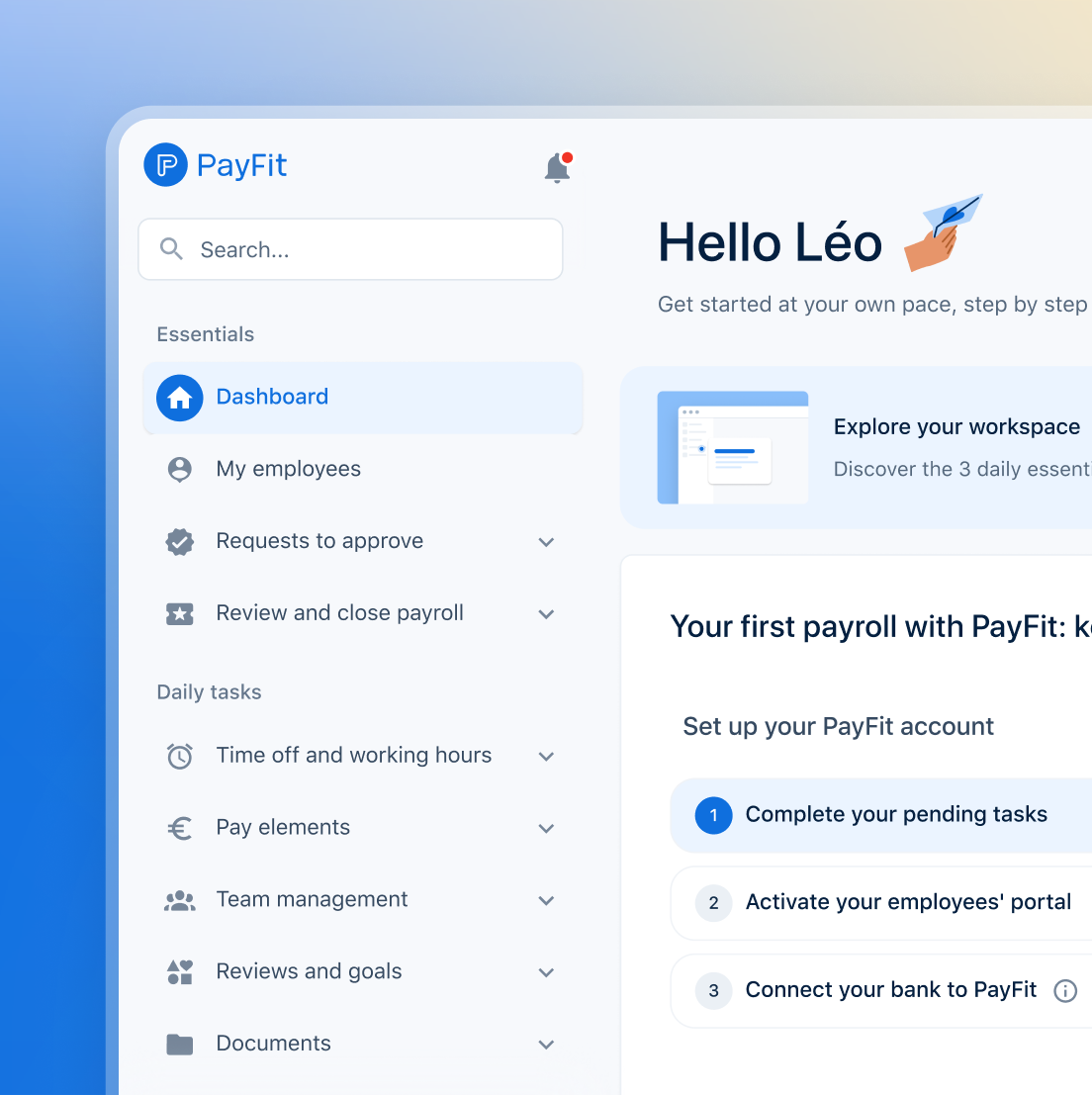✨ Health insurance, now in PayFit - learn more
💷 All the rates & thresholds you need to know for 25/26...right here
✨ The Payroll Journey: Start, Scale & Succeed Globally - learn more
✨ Health insurance, now in PayFit - learn more
💷 All the rates & thresholds you need to know for 25/26...right here
✨ The Payroll Journey: Start, Scale & Succeed Globally - learn more

This week is the annual Mental Health Awareness Week here in the UK. Promoted yearly by the Mental Health Foundation, the initiative seeks to put mental health front and centre of the national conversation to help improve awareness and understanding of different mental health conditions.
The theme of this year’s Mental Health Awareness Week is anxiety, chosen in part due to a cost-of-living crisis resulting in more than a third of adults saying they feel anxious about their financial situation.
And in the workplace, anxiety can rear its head as a result of the individuals in question feeling like things aren’t progressing in the direction they might hope. For example, if they feel either they are underperforming against certain criteria or expectations.
This makes it fitting that we could sit down with Kajetan Von Armansperg, co-CEO at Leapsome, to talk about balancing the development of a high-performing, resilient organisation through people enablement with mental health considerations.
As we learned from Leapsome, many workers lack the right level of clarity and support to do their best in the workplace, making it difficult to prosper and leading to work becoming a strain.
All of these things can create anxiety, a fear of that lack of support and direction resulting in the kind of sub-par performance that could inhibit career progression. An additional degree of anxiety may arise as a result of pay freezes owing to a tough economic climate, and a pay rise can help alleviate some anxiety surrounding the growing cost of living.
And while there are external factors that we often can’t control - such as the rise of the cost of living - there are things businesses can do internally to greatly alleviate workplace stressors, which we can control. Our Q&A with Kajetan centred around how businesses can work with their teams to do just that.
So grab a cuppa and take five minutes to get inspired on how you can help your people be the best versions of themselves in the workplace.

The best way to integrate mental health considerations into people enablement is to create a culture that encourages open communication and regular feedback. It can be done by promoting a good work-life balance, providing access to mental health resources, and offering ongoing training and development opportunities to support employee wellbeing.
First and foremost, it’s about providing regular feedback and recognition. This can help boost morale, reduce stress, and foster open communication, which are all important for creating a positive work environment that supports good mental health in your team.
It’s very important! A burned-out, anxious, and discouraged workforce will never be productive. More importantly, stress, uncertainty, and workplace pressure can have long-lasting health implications. A healthy team will always be more productive.

Kajetan Von Armansperg, co-founder and co-CEO, Leapsome
I would say build a culture of transparency where everyone is encouraged to be open and honest and to challenge the status quo.
Businesses should look to build psychologically safe workplaces where everyone feels able to speak up without fear of negative consequences. This fosters an environment where individuals feel comfortable expressing their mental health needs, such as seeking support or discussing workplace stressors.
In many ways, this question is at the heart of what people enablement is because two of its core elements are caring for employee wellbeing and enabling managers to support their teams. So, understanding the pitfalls and challenges managers face in the area of mental health support is a natural extension of both of those things. From our perspective, there are three people enablement practices, in particular, that drive both performance and ensure mental wellbeing:
A business that prioritises people enablement will help enable managers to provide real-time feedback and recognition to their team members. This can help boost employee morale, reduce stress, and encourage open communication, creating a positive work environment that is conducive to mental wellbeing.
By facilitating regular performance reviews and goal setting, managers can identify and address potential issues early on, reducing the risk of burnout and overwhelming workloads. This proactive approach can contribute to a healthier work-life balance for employees.
This one is critical. Employee engagement surveys should measure employee satisfaction, gather feedback, and identify areas for improvement. Managers can create a supportive work environment that promotes mental health and wellbeing by addressing the concerns raised in these surveys.
By leveraging these practices, managers can build a supportive work environment prioritising employee mental health and wellbeing. This, in turn, can lead to higher employee engagement, increased job satisfaction, and better overall performance.
So, to sum up in a nutshell, companies can take the following steps to help improve and support mental health whilst enabling their people to perform:
Create a company culture that encourages open communication and regular feedback.
Promote a good work-life balance
Provide access to mental health resources
Offer ongoing training and development opportunities to support employee wellbeing
Build psychologically safe workplaces where everyone feels able to speak up without fear of negative consequences
Facilitate regular performance reviews and goal setting, to identify and address potential issues early on
And last but definitely not least…put mental health and wellbeing at the core of everything you do - a healthy team will always be a more productive team.
Find out more about Mental Health Awareness Week, including stats and resources, here.
Kajetan von Armansperg is the co-founder and co-CEO of Leapsome, a people enablement platform backed by Insight Partners, Creandum, and Visionaries Club. Leapsome supports more than 1500 companies (including Spotify, Unity, and monday.com) in building high-performing teams by driving employee development, productivity, and engagement.
Prior to Leapsome, he led the Product team at Funding Circle, a global marketplace that facilitates access to capital for small businesses. He is an alumnus of HEC Paris & the University of Mannheim and a fellow of the German National Academic Foundation.

Find the right payroll software

Learn what an employee performance evaluation is, what to include, how to run effective reviews, and how to turn feedback into real improvement.

Corporate wellbeing programmes can support employee health, reduce stress and improve engagement. Learn what to include, how to launch, and which initiatives work best.

2026 strategic guide for UK finance and HR leaders on running effective employment engagement surveys, with top questions, methods & software solutions.

Employee performance management tools streamline reviews, goal tracking and feedback. Discover features, benefits and top UK options for small businesses.

Read our guide to performance appraisals, from their definition and purpose through to best practices and available tools for UK companies.

Employee Assistance Programmes can be a valuable tool for HR leaders to provide support and advice for employees. Find out about them here.

New features to save you time and give you back control. Watch now to see what's possible